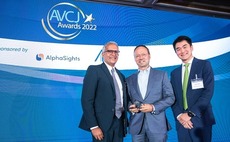
Control deals cast light on Asia GPs' value creation credentials - AVCJ Forum
Private equity investors are seeing more control deals in emerging Asian markets traditionally dominated by growth capital, which in turn gives LPs greater visibility as to GPs’ operational capabilities.
Han Seng Low, executive director at United Overseas Bank (UOB), observed that between 2003 and 2007 many Asian GPs proved themselves as dealmakers but the nature of the market - with investors often taking minority positions in companies and playing a largely passive role before exiting at IPO - meant it was unclear whether they could add value.
"Sitting here today one can make a better judgment call. The bar is a little higher because the opportunity set requires a more interventionist approach. There are enough data points for us as investors to take a better look," Low told the AVCJ Singapore Forum.
Jan Nielsen, senior managing director for private equity at The Blackstone Group, added that his firm is seeing more control opportunities in China, India and Southeast Asia - and sellers increasingly recognize the role private equity can play in corporate development. "Three or four years ago a lot of deal flow was 10-15% minority stakes, passive investments. Now there is a much greater appreciation for the skills of a PE firm with a global approach or a specialist local approach," he said.
However, the relationship between control and value-add is not necessarily binary.
In more mature markets, where leveraged buyouts are the norm, it is a given. Japan-based Advantage Partners has completed 50 deals in the last 15 years and only 2-3 were minority investments. "When we go into a company we are almost always asking for management to change in some fundamental way," said Emmett Thomas, partner and head of Asia at Advantage. "We need the silver bullet of control so management knows that if they don't change there is an alternative they will not like."
Private equity firms with more exposure to emerging markets unsurprisingly advocate a flexible approach; the onus is not so much on the percentage ownership as the level of influence. Building effective working relationships with existing management and shareholders who remain in place is a key consideration in this context.
"Our view has always been that the percentage ownership and rights are heavily negotiated - it is part of our fiduciary duty to LPs - but ultimately a lot of these come down to alignment and the conviction you build with the partner," said Kabir Mathur, director for Southeast Asia at KKR. "It is less about control and non control but more about whether we are making objective decisions about what is best for the company."
In some cases, minority participation is necessary. Whenever Blackstone makes an investment - and, operating from a global fund, deals out of Asia are scored against those from Europe and the US - it must always do something different from the previous owner. Minority deals are still considered, particularly in sectors where control is difficult to obtain.
"In the consumer space, where we find ways to play the rising middle class, there is a lot of strategic interest," Nielsen said. "When control is on offer it is very difficult for private equity to compete, especially at our end of the market."
For a global private equity firm like Blackstone, value-add has become an ingrained part of the investment process, drawing on the expertise of teams focused on different industries and geographies. Smaller players with narrower geographical coverage must appreciate their operational limitations; skills that apply to one market don't necessarily transfer to another.
Tim Sims, managing director at Australia and New Zealand-focused Pacific Equity Partners, noted that while it is possible to demonstrate a portfolio company's international potential, his firm may not be best suited to realizing it.
"People want strong Asian distribution networks and access to the rising middle class - it represents a huge arbitrage opportunity. We are not the logical agent to deliver that," he said. We are just another bunch of guys and there are too many good business people here for us to be competitive."
Poultry producer Tegel Foods and, more recently, Peters Ice Cream are both examples of PEP exiting Australasian companies to buyers that saw the potential for expansion into new markets. Affinity Equity Partners bought Tegel while Europe-based R&R, which is owned by PAI Partners, acquired Peters.
Latest News
Asian GPs slow implementation of ESG policies - survey
Asia-based private equity firms are assigning more dedicated resources to environment, social, and governance (ESG) programmes, but policy changes have slowed in the past 12 months, in part due to concerns raised internally and by LPs, according to a...
Singapore fintech start-up LXA gets $10m seed round
New Enterprise Associates (NEA) has led a USD 10m seed round for Singapore’s LXA, a financial technology start-up launched by a former Asia senior executive at The Blackstone Group.
India's InCred announces $60m round, claims unicorn status
Indian non-bank lender InCred Financial Services said it has received INR 5bn (USD 60m) at a valuation of at least USD 1bn from unnamed investors including “a global private equity fund.”
Insight leads $50m round for Australia's Roller
Insight Partners has led a USD 50m round for Australia’s Roller, a venue management software provider specializing in family fun parks.








